- Home
- Christie Golden
The Shattering Page 17
The Shattering Read online
Page 17
Moira turned her gaze to Anduin, her smile widening. Anduin thought she looked like a fox ready to pounce on a rabbit.
“And Anduin,” she said, almost purring. “What great friends we shall doubtless become! Two children of royalty here in Ironforge. I am so very interested in getting to know you! You simply must stay for a while, so that we can become better acquainted.”
“My father asked me to stay in Ironforge until such time as the proper heir to the throne was found,” Anduin said, keeping his voice calm and polite. This much was true. “I have duties awaiting me at home, now that this solemn task is complete.”
Also true. But the implication—that he was being summoned home by his father—was all of his own making.
Her smile didn’t move. “Oh, no, I wouldn’t dream of such a disappointing thing. I am certain that your father will understand.”
“I believe that—”
She held up an imperious hand. “I won’t hear of it, Prince Anduin. You are my guest, and you’ll not be leaving for Stormwind until we’ve had a good, long visit.” She smiled and nodded, as if everything was settled.
And with a clench in his gut, Anduin realized that everything was.
He murmured something polite and flattering, and she gave him a wave of dismissal. He, Belgrum, and Rohan moved out. Anduin was in a daze.
“Did … was that just … a coup?” he asked, pitching his voice very low.
“It’s perfectly legal an’ aboveboard,” Belgrum said. “In th’ absence of any male heir, th’ legitimate female heir has rights tae claim th’ throne. Moira even outranks Muradin an’ Brann, because she’s the direct heir. So it’s nae a coup if it’s a legitimate claim.”
“But … she and Magni were estranged. And they’re Dark Iron dwarves!” Anduin was struggling to make sense of it all.
“Well, Magni never disowned her, lad,” Rohan said. “He always wanted her tae come home. Even if he—well, that’s water under the bridge now. Though I’m sure he’d be all kinds o’ furious at seeing the Dark Irons in his city. But they are our cousins … perhaps this will turn out tae be a good th—”
He halted in midword. They had emerged from the High Seat into the Great Forge area. The forge had become operational again shortly after Magni’s funeral. And right over there was where the gryphons flew in and out of Ironforge.
Except … they were gone.
So were the flight masters. Only the empty roosts padded with straw remained at the site where several gryphons had previously waited to bear riders to various places around the Eastern Kingdoms. Anduin glanced around and saw a tufted tail and yellow, leonine hindquarters disappearing in the direction of the gates. Without thinking, Anduin broke into a run, ignoring the calls for him to stop.
He caught up with a flight master and one of the gryphons as they stepped out into the cold, snowy day. “Gryth!” he cried, laying a hand on the dwarf’s broad shoulder. “What’s going on? Why are the gryphons gone?”
Gryth Thurden turned to Anduin, scowling. “Better not get too close, lad, or ye might get sick!”
Ordinarily that would be a warning to cause some concern, but the way in which Gryth uttered it, it sounded more like a bad joke, so thick with sarcasm was his voice.
“What?” Anduin wasn’t sure if a prank was being played, and looked askance at the gryphon. “Well, this one’s wing looks injured, but he doesn’t look ill. …”
“Och, nay, nay, they’re terrible sick!” Gryth literally rolled his eyes. “At least, that’s what th’ new queen’s Dark Iron bruisers told us. They’re all very ill, it seems. And it’s catching! Tae everyone—imagine that! Dwarves, humans, elves, gnomes, even draenei, who aren’t even from this world! What a powerful disease! They’ll have to be quarantined fer months. No gryphon flights in or out. This one dinna like th’ Dark Irons and took a bite out o’ one. Got a nice wee injury tae his wing fer his trouble. The others have already flown tae their new pens. Light alone knows when they’ll be back.”
“But—you know that’s not true!” Anduin blurted.
Gryth turned slowly toward him. “Of course it’s nae true,” he said, his voice deep and angry. “An’ yon pretender queen is a fool tae think we’d believe it. But what am I supposed tae do? Moira doesna want th’ gryphons flying, and those Dark Iron bastards threatened to kill this beastie right on the spot when I protested. Better they’re alive and landbound fer a wee bit, until things can get set right again. Light willing, that’s soon.”
Anduin watched them continue down the road from Ironforge. He wondered distractedly if the animals would indeed be simply quarantined or if they’d be put down. He drew a trembling hand across his forehead, which was damp with sweat despite the cold air outside.
Belgrum and Rohan had caught up to him. They looked troubled. Another, a gnome wearing a bleak expression, was with them. “The gryphons are being quarantined,” Anduin said dully, turning to them. “Apparently they are quite sick, and the illness is contagious.”
“Oh, really?” Rohan said, scowling. “Perhaps it was a sick gryphon who damaged th’ Deeprun Tram, too, then?”
“What?” Anduin was shivering, and he folded his arms tight. He was pretty sure he was only shaking from the cold as they went back inside. At least he hoped so.
The gnome spoke up. “The tram. It’s been determined to be ‘unsafe’ and ordered closed until repairs can be made to it. But there’s nothing unsafe about it! It’s just fine! I work on that tram every day; I’d know if there was anything amiss!”
“Unsafe trams and unwell gryphons,” Anduin said, narrowing his eyes. “Ways to get out of the city …”
Rohan scowled. “Aye, we figured that out, too. But there are other ways to—”
“What do you think you’re doing, you brute?” came a shrill female gnome voice.
“Yes indeed!” echoed another gnome’s voice. “We’re fine, reputable citizens!”
A male gnome. Both voices sounded familiar to Anduin. He exchanged worried glances with his friends, and as one they picked up their pace to reach the Commons.
Four Dark Iron dwarves had firm grips on the arms of two gnomes, both of whom were wriggling in protest and voicing their distress loudly.
“Bink and Dink,” Anduin said, remembering the brother-sister mage pair.
“Let them go!” A handful of Ironforge guards were running up, axes and shields drawn.
“Orders from Her Majesty,” one of the Dark Irons snarled. “They’ll nae be harmed.” His voice was deep and sinister and made Anduin instantly think, Liar! “We’re just takin’ them away fer questioning about a few suspicious things, that’s all.”
No, they weren’t, and Anduin knew it. They were taking them in because they were magi … and magi were able to create portals out of Ironforge. And Moira didn’t want anyone getting out of Ironforge.
“She’s not our Majesty, not yet,” said the guard, his voice dangerous and soft. “Let. Them. Go.”
For answer, the Dark Iron who had spoken shoved Dink at another of his fellows, drew his sword, and attacked.
It happened so quickly. Dark Irons and Bronzebeards seemed to come from all directions, the simmering resentment and fear and anger boiling up all at once. The air was filled not with the ringing of hammer on anvil, but with angry shouts and the clash of steel. Anduin surged forward, but a powerful hand on his arm pulled him back.
“Nay, lad! This is dwarf business!” cried Rohan. He stepped forward and lifted his arms, uttering a prayer and emanating calm. “Hold yer weapons! Ironforge should never see dwarf against dwarf again!”
“Stand down, guards of Ironforge! Stand down!”
The voice was thickly accented, used to being obeyed, and thankfully belonged to Angus Stonehammer, the captain of the Ironforge guards. He was at the head of several of them, all with hard, angry eyes, all hastening toward the conflict.
The guards were well trained, and it only took a few seconds before they obeyed, leaping back and standi
ng in a defensive position but nonetheless not attacking. The Dark Irons pressed the attack for a bit, but finally they, too, paused. In the confusion, the gnomes had been forgotten, and now they scurried up to Anduin and Belgrum, clinging to them in fright. Rohan quickly stepped in to heal the wounded while Stonehammer continued speaking. Anduin saw that there were indeed many, some of them quite seriously injured, Dark Iron and Bronzebeard alike. Despite the heat of the place, a chill swept through him, and he couldn’t help but wonder if he was looking at the first bitter stirrings of a second dwarven civil war.
“Guardsmen!” the captain was bellowing. “Moira is th’ heir tae th’ throne until and unless a better claim can be made, ye will respect her an’ those she chooses to protect her as such! Do ye understand?”
There was a mumbled chorus of “ayes,” some of them sounding very reluctant.
“And ye!” Stonehammer stabbed a stubby finger at the Dark Irons. “Ye canna take proper citizens and just haul them off. There’s law tae be observed. I dinna think ye’ve even charged these wee ones. We guard the people of Ironforge an’ enforce its laws. No matter who is on th’ throne!”
The Dark Irons shifted uneasily. Anduin smiled bitterly, but with some hope. It was one thing to force a tram to close, or to kill or threaten animals in order to keep Ironforge isolated. It was another to lock up its citizens without cause and due process of law. Moira might be able to achieve some of her plans—and Anduin suspected that the mail and all other methods of communication with the outside world would be suspended—but she hadn’t bargained on the sheer guts and will of the dwarves of Ironforge.
Growling, the Dark Irons glared at the gnomes, and nodded. “If it’s the law ye want, then ye will have it,” one of them growled. “We’ll obey it. Because, ye see, Her Majesty is the legal heir. And ye’ll find out just what that means soon enough.”
He spat at the other dwarf’s feet, then he and his companions turned and marched away. Anduin watched them go. He should have felt relieved, but he did not. This conflict was far, far from over, and he feared that before it had all been settled, dwarven blood would flow in Ironforge as the hot metal flowed in the forge—freely, and in large quantities.
NINETEEN
Thrall leaned forward and scratched the long, fawn-colored neck of the talbuk he rode. The animal bobbed its head in pleasure, but remained alert, ready to bear Thrall wherever he wished. He had come desiring to learn new things, and already he was doing so, sitting astride an animal he had only seen in glimpses before now. The Mag’har still rode wolves, as most orcs did, but the talbuk were dear to them, special creatures that only a chosen few were allowed to ride.
Aggra’s talbuk was a beautiful blue hue, and seemed feistier. Thrall’s was, as she had told him earlier, “A mount suitable for novices like you, Go’el.” Another slight from one who seemed to take great pleasure in insulting him just enough but not too much. He looked upon Aggra as one more test he must endure for the good of his people.
He liked his talbuk, Shuk’sar, well enough, and had no complaint to offer. The ride was bumpier than the smooth stride of the wolf, but he was growing used to it.
“Nagrand was lucky. It has not suffered as other parts of what was once Draenor have,” Aggra said as they paused for water by a small, clear pool. “Other places are broken and harmed. We do what we can to learn here, and help others to help the elements elsewhere. It will never be the same as before, but it will heal as much as it can.”
“I wonder if my world will be able to say the same,” Thrall said. “You mentioned a place called the Throne of the Elements?”
Aggra nodded. “When we ask for aid from the elements to enact our will, we touch the spirits of those elements. Spirits of Earth, Air, Fire, and Water.”
It was Thrall’s turn to nod, and he did so, a little impatiently. “I know this. It was one of the first things Drek’Thar taught me.”
“Oh? Good. Just making certain. I do not know how rudimentary your knowledge is, after all.” She smiled with false sweetness and he gritted his teeth.
“Geyah said something about the elements having names here,” he continued. “On Azeroth, having a name often denotes that these are particularly strong elementals. What is the role of these beings?”
“That’s actually a good question,” she said, though she offered the praise grudgingly. “These named beings are called Furies. They are extremely powerful elementals, but they are no more all that it is to be earth, or water, than a handful of soil or a drop of water is all that it is to be earth or water. It is a complex idea to hold in one’s head.”
Thrall sighed. “Whatever you think of me, Aggra, you cannot possibly think that I lack intelligence. Your continual insults are eventually going to harm your ability to instruct and mine to learn, and neither of us wants that.”
Her eyes narrowed and her nostrils flared, and he knew he’d hit the mark. Her strong jaw clenched.
“No. You are not stupid, Go’el. I question your choices, your decisions, but I know there is a brain in your skull.”
“Then, please, teach me as if I actually have the capacity to learn. It will go much faster and I will be able to return home that much sooner. And surely that is something we both want.”
“True,” she said bluntly. “If you grasp what I am telling you—”
“Which I do,” Thrall said, barely able to be civil.
“—then let us spend the day traveling away from Nagrand. I will show you some of the other parts of Outland. I will show you polluted water elementals and poisoned earth elementals. You can try to talk to them—or engage in battle with them, for they will not come to your call—and see how they feel to you.”
“I have worked with corrupted and twisted elementals before,” Thrall replied, nodding.
“Good. Perhaps you will find something familiar in their illness that can help you heal Azeroth.”
He blinked. When it wasn’t dripping sarcasm or contempt, her voice was husky and melodic. And her face, when not scowling, had a calm beauty that reminded him of Geyah. It was too bad she was so determined to dislike him. He would have liked to have her return with him to Azeroth, use her skill to help the Horde and Azeroth both. But even as these thoughts occurred to him, she seemed to remember how much she disliked Thrall, and frowned.
Clucking her tongue, she turned her talbuk’s head with unnecessary vigor and headed south.
“Come, Go’el,” she said. “We ride to the end of the world.”
* * *
“Things are changing,” said Archdruid Hamuul Runetotem. He sat quietly with Cairne outside of Thunder Bluff, in the area known as Red Rocks. This place of jutting, rust-colored stones was considered a sacred site to the ancestors of the tauren. Cairne came here when he needed to think calmly.
He had therefore been coming here often since Thrall left.
“I agree,” Cairne said. “When Garrosh proposed rebuilding Orgrimmar as soon as Thrall left rather than launching some kind of invasion somewhere, I was pleased. I commended him. Told him that showed he was a leader who cared about the well-being of his people, not an orc who was a personal glory-seeker.” Cairne snorted. “I wonder, now. Considering what he did with the money.”
Orgrimmar had indeed been rebuilt, but it was barely recognizable. All of the damaged buildings had been replaced, but not with the wooden, thatched, or hide-covered roofs that had been in place before. Citing a need to keep Orgrimmar “safe from future fires,” Garrosh had commissioned metal instead of combustible materials. One could argue that his choice was a reasonable one.
One could also, as Cairne had upon beholding the new buildings in Orgrimmar, feel a shiver of unease at how very, very much the new architecture resembled the old. He had never traveled to Draenor himself, but he had seen images of Hellfire Citadel and some of the other buildings created by the orcs when they were in the grip of the demonic bloodlust. Black iron, wrought into jutting, pointed, brutal-looking buildings that were practical
but unwelcoming. Now, here in the Horde capital city, one could imagine tools of torture lurking within, rather than the simple groceries and items the buildings actually housed.
He had left Thunder Bluff for Orgrimmar upon Thrall’s departure to be physically accessible to the new young leader Thrall had appointed against Cairne’s advice. As ruler over their people in his absence, Cairne had appointed his son, Baine, a fine warrior with a cool head like his father’s. Baine had had no difficulties in his father’s absence.
As the time stretched on, Cairne had found his advice was not particularly welcome, and indeed was often ignored. As he watched the hostile-looking architecture go up, Cairne had realized that this was no longer a place for him to be. He had asked to see Garrosh, explained that he was returning to Thunder Bluff, and had been surprised at Garrosh’s reaction.
He had expected relief or indifference. Instead, Garrosh had risen and gone to him.
“We fought together well once, in Northrend,” Garrosh said.
“That we did,” Cairne agreed.
“And yet I know you did not agree with many of my decisions.”
Cairne peered at him for a moment. “Both things are true, Garrosh. But I think that my disagreement with your decisions interferes with my ability to aid you.”
“I … Thrall entrusted me with the care of the Horde. He is a symbol of it, as are you. I have no wish to offend you, but I have to make my own decisions. And I will do so. I will do what I think best for the honor and glory of the Horde … and its overall well-being.”
Cairne liked the words. And he was willing to believe that Garrosh actually meant them. But he knew Garrosh perhaps better than the orc knew himself. Cairne had known of Grom, had known countless other hotheaded youths and watched so many of them come to violent and often senseless ends. He had no wish for Garrosh to join their number, and worse, drag down the Horde along with him.
But it was pointless for him to stay. Garrosh would do exactly as he wanted. If he wished Cairne’s advice, he would find a way to justify requesting it so he could do so without losing his pride. And Cairne would let him keep it.

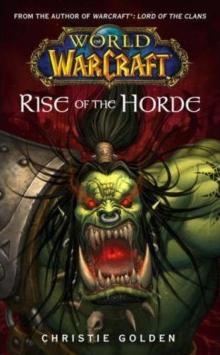 Rise of the Horde
Rise of the Horde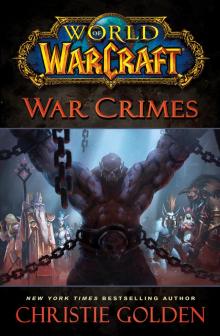 World of Warcraft: War Crimes
World of Warcraft: War Crimes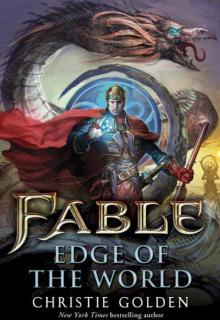 Fable: Edge of the World
Fable: Edge of the World Homecoming
Homecoming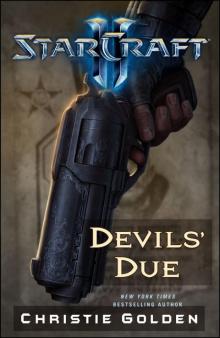 StarCraft II: Devil's Due
StarCraft II: Devil's Due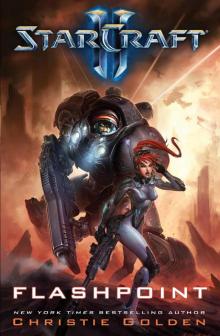 Starcraft II: Flashpoint
Starcraft II: Flashpoint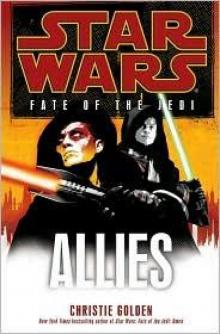 Allies
Allies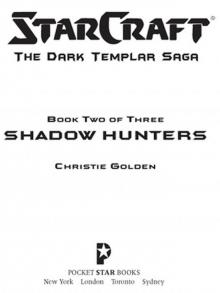 Shadow Hunters
Shadow Hunters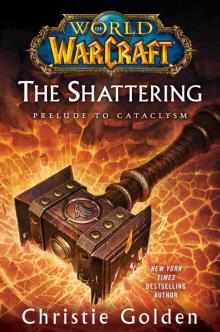 The Shattering: Prelude to Cataclysm wowct-1
The Shattering: Prelude to Cataclysm wowct-1 STAR TREK: VOY - Homecoming, Book Two - The Farther Shore
STAR TREK: VOY - Homecoming, Book Two - The Farther Shore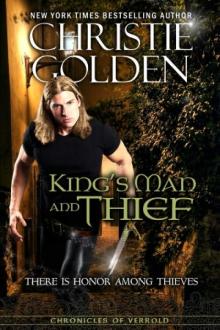 King's Man and Thief
King's Man and Thief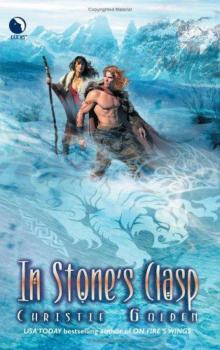 In Stone's Clasp
In Stone's Clasp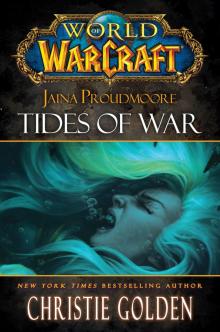 Jaina Proudmoore: Tides of War
Jaina Proudmoore: Tides of War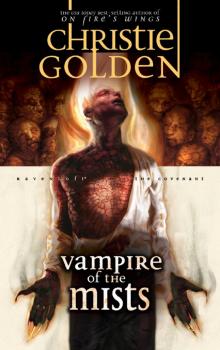 Vampire of the Mists
Vampire of the Mists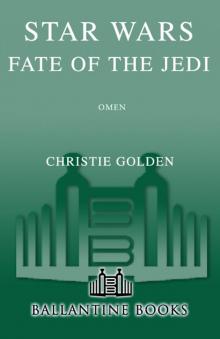 Star Wars: Fate of the Jedi II: Omen
Star Wars: Fate of the Jedi II: Omen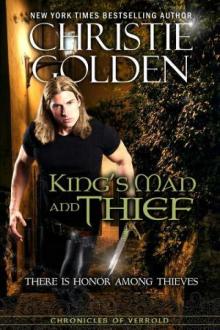 King's man and thief cov-2
King's man and thief cov-2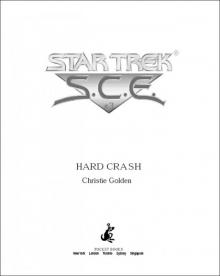 Star Trek
Star Trek StarCraft: Dark Templar: Twilight
StarCraft: Dark Templar: Twilight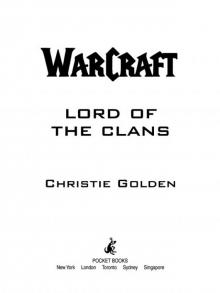 Lord Of The Clans
Lord Of The Clans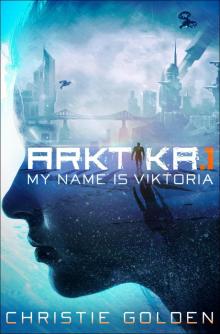 ARKTIKA.1 (Short Story)
ARKTIKA.1 (Short Story)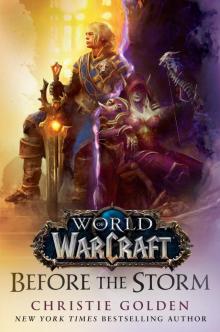 Before the Storm
Before the Storm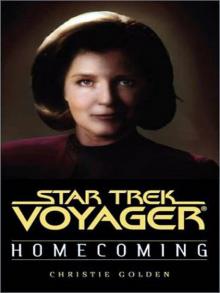 STAR TREK: VOY - Homecoming, Book One
STAR TREK: VOY - Homecoming, Book One Shadow of Heaven
Shadow of Heaven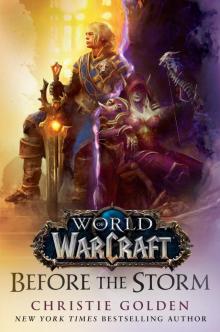 Before the Storm (World of Warcraft)
Before the Storm (World of Warcraft)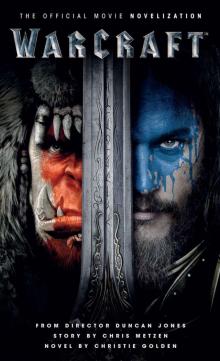 Warcraft Official Movie Novelization
Warcraft Official Movie Novelization Flashpoint
Flashpoint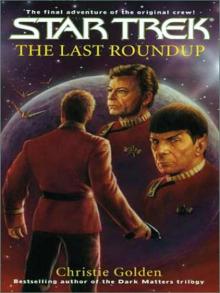 STAR TREK: The Original Series - The Last Roundup
STAR TREK: The Original Series - The Last Roundup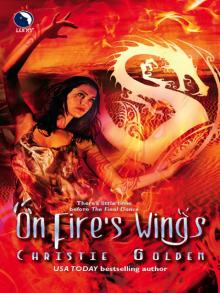 On Fire’s Wings
On Fire’s Wings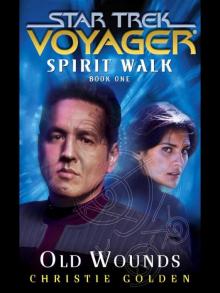 Spirit Walk, Book One
Spirit Walk, Book One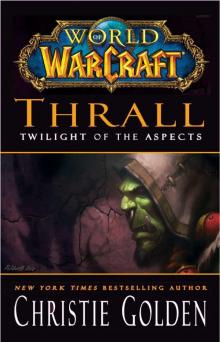 Thrall Twilight of the Aspects
Thrall Twilight of the Aspects Valerian and the City of a Thousand Planets
Valerian and the City of a Thousand Planets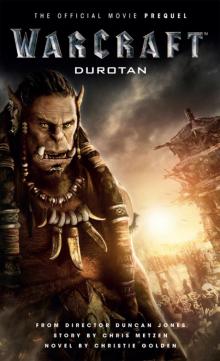 Warcraft
Warcraft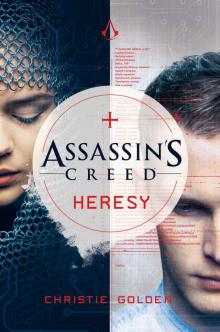 Assassin's Creed: Heresy
Assassin's Creed: Heresy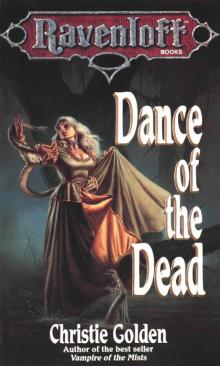 Dance of the Dead
Dance of the Dead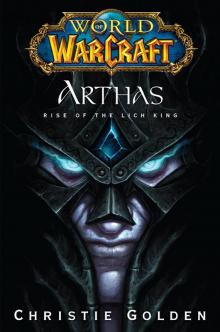 Arthas: Rise of the Lich King wow-6
Arthas: Rise of the Lich King wow-6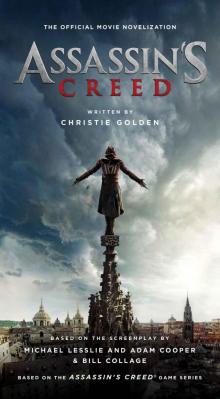 Assassin's Creed: The Official Movie Novelization
Assassin's Creed: The Official Movie Novelization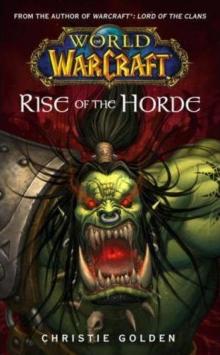 Rise of the Horde wow-2
Rise of the Horde wow-2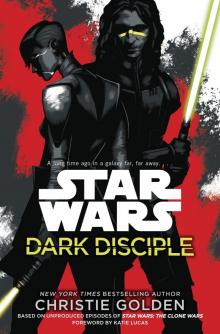 Dark Disciple
Dark Disciple Ghost Dance
Ghost Dance The Shattering
The Shattering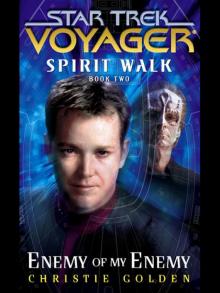 Spirit Walk, Book Two
Spirit Walk, Book Two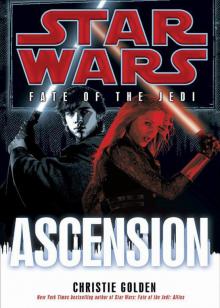 Star Wars: Fate of the Jedi: Ascension
Star Wars: Fate of the Jedi: Ascension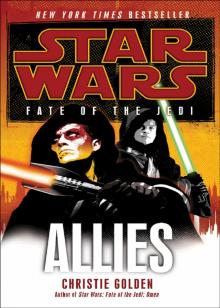 Star Wars: Fate of the Jedi V: Allies
Star Wars: Fate of the Jedi V: Allies The Enemy Within
The Enemy Within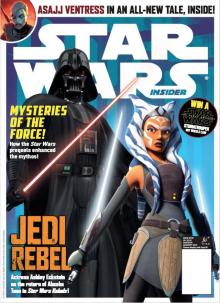 Kindred Spirits
Kindred Spirits The Farther Shore
The Farther Shore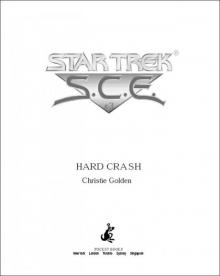 Star Trek: Hard Crash (Star Trek: Starfleet Corps of Engineers Book 3)
Star Trek: Hard Crash (Star Trek: Starfleet Corps of Engineers Book 3) Twilight
Twilight